
sentence structure lesson plan Educational Assessment Lesson Plan
Teach complex sentences. My compound sentence lesson plan is often a bridge from simple to complex sentences. Coordinating and correlative conjunctions can be in both simple and compound sentences, so those sentence structure activities fit together nicely. Then, review subordinating conjunctions. We memorize these conjunctions, and my classes.
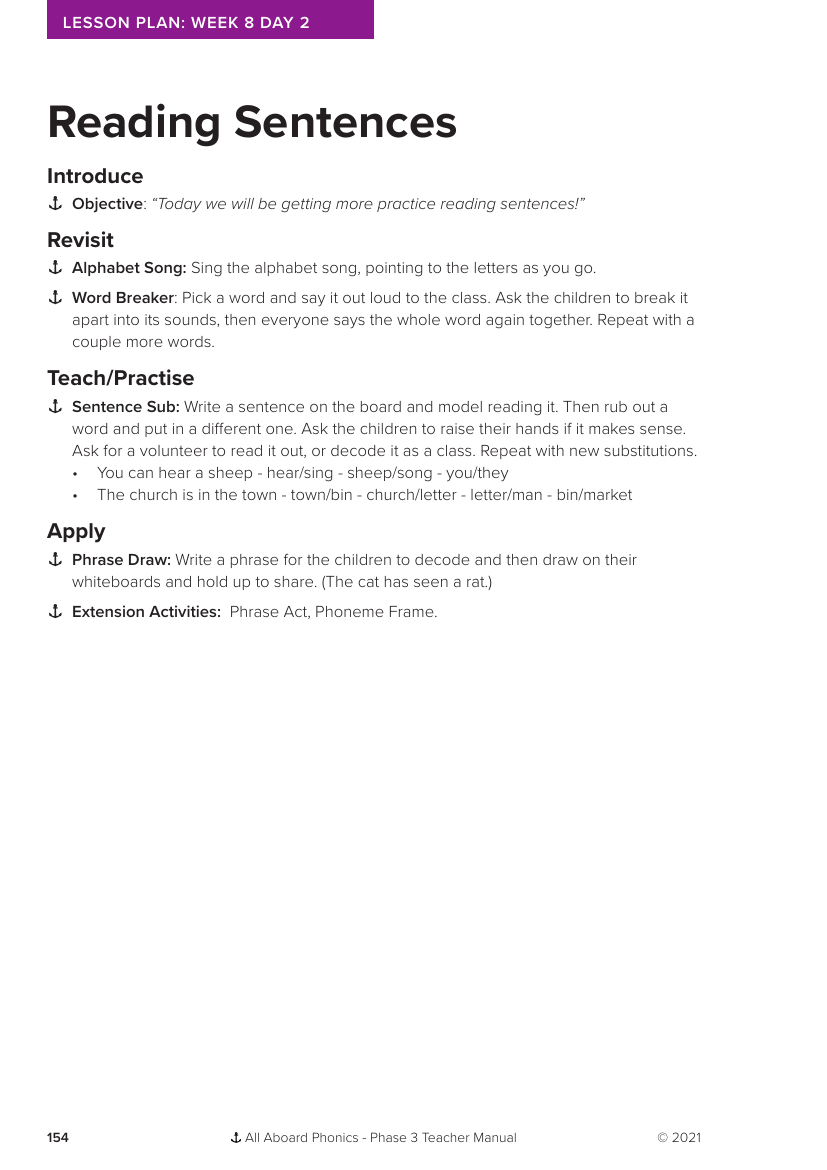
Week 8, lesson 2 AyeAye Caption letter formation activity Phonics Phase 3, Worksheet DfE
Instructor: Kristen Goode. Kristen has been an educator for 25+ years - as a classroom teacher, a school administrator, and a university instructor. She holds a doctorate in Education Leadership.
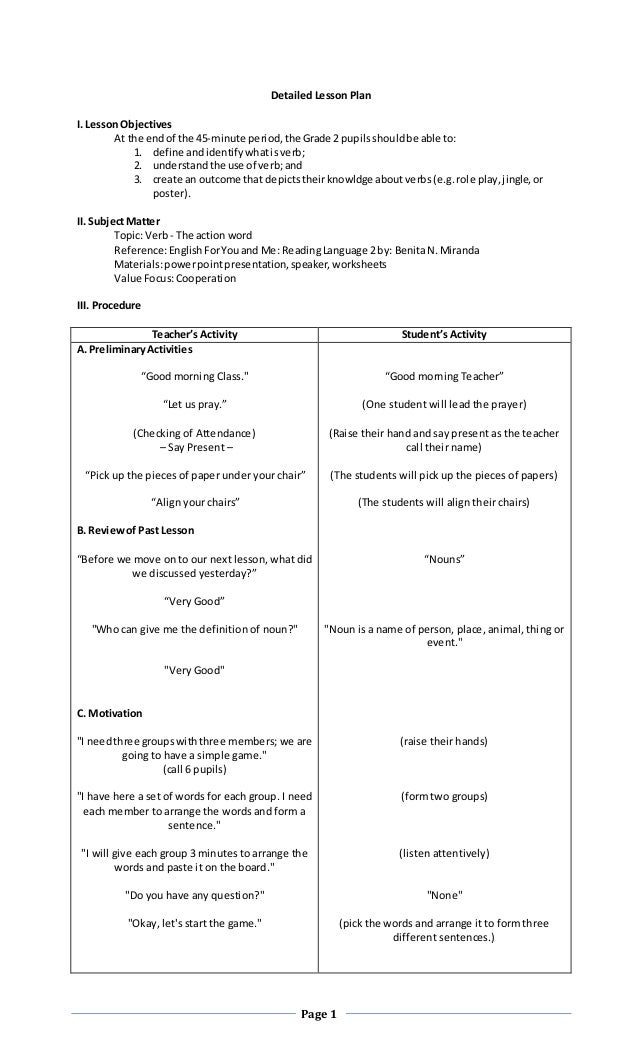
😎 Example of detailed lesson plan in english grade 2. 2nd Grade Lesson Plans. 20190125
Sentence structure lesson plans taught out of context have very little effect on writing improvement. This lesson plan on sentence structure shows students the importance of varying sentence structure and inspires them to apply it to their own writing. The end result of this lesson will be better writing.
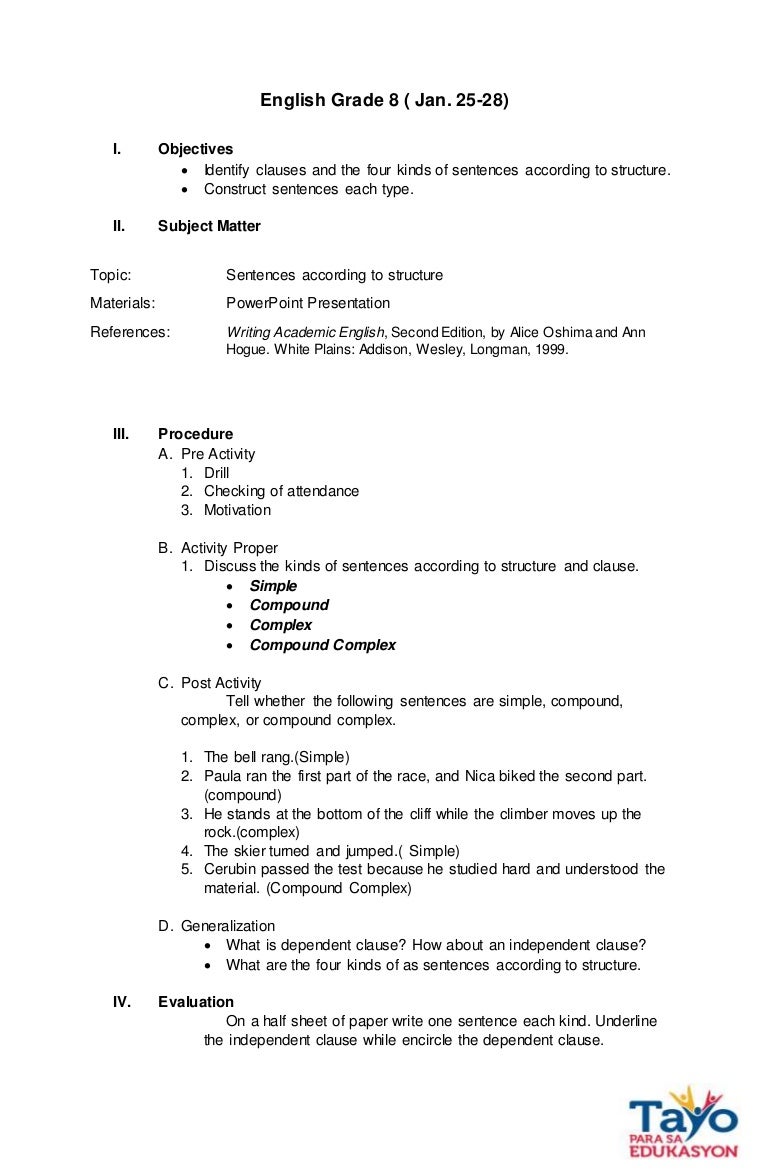
Semi Detailed Lesson plan (Sentence Structures)
Lesson plans Here you can find a wide range of full lesson plans to use in your classroom. All of our lessons are designed around themes engaging and relevant to English ESL-EFL learners and can be used to complement your school curriculum, giving students an opportunity to develop their English language and skills in motivating and enjoyable ways.
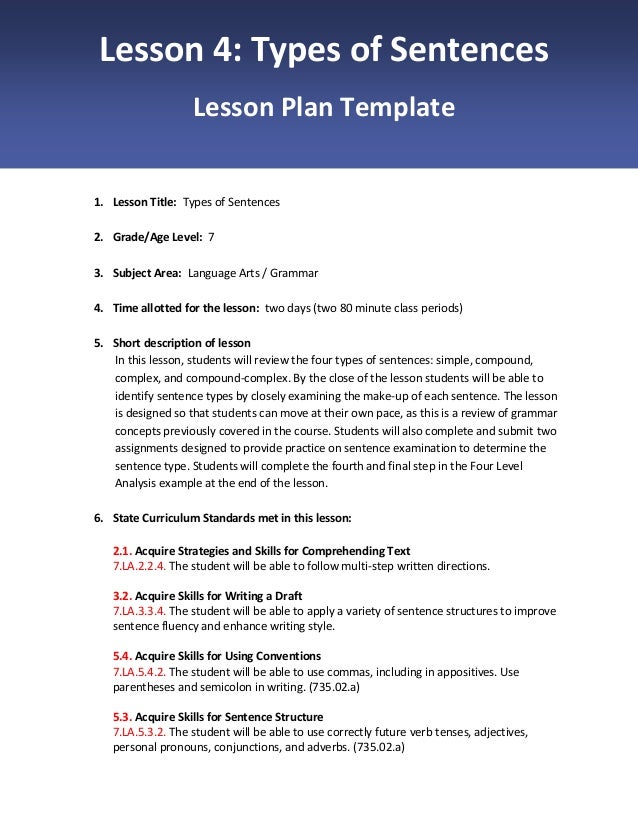
Lesson 4
Expanding Sentences Grade Level: 1-3 Teacher Guidelines pages 1 - 2 Instructional Pages pages 3 - 5 Activity Page pages 6 - 9. Sentences for opening to lesson. Copy handouts. Options for Lesson: Students may work alone or in larger groups for the activity. Increase number of sentences needed for the activity. Students vote on the

(DOC) Detailed Lesson plan In 4 kinds of sentences according to use Lacao Sanchez
Introduction (5 minutes) To begin the lesson, write a simple declarative sentence on the board. You should be able to change the tone of this sentence by switching out the punctuation. Some great examples include: I have a hat. I like ice cream. Next, change the period at the end of the sentence to a question mark.

Our Effective Sentences for Meaning/Interest lesson plan teaches students how to make their
Four different types of sentences: interrogative, declarative, imperative, and exclamatory. 1. The students will participate in the entire lesson. 2.The students will be able to identify different sentences as declarative, interrogative, exclamatory, and imperative. 3.The students will be able to place the appopriate end punctuation to a sentence.

types of sentences lesson plan Sentence (Linguistics) Linguistics
The 3 Types of Sentences lesson plan includes four content pages. The lesson begins with a definition of a sentence. A sentence is a set of words, which usually includes a subject and a predicate (verb), and expresses a statement, question, exclamation, or command.

Different Types of Sentences Lesson Plan.docx Question Sentence (Linguistics) Free 30day
This lesson helps students learn to apply effective writing techniques on their own over time without constant reminders from the teacher. Featured Resources Show-Me Sentences Handout: This handout provides an example of a revised "show-me" sentence and six exercises for students to practice. From Theory to Practice
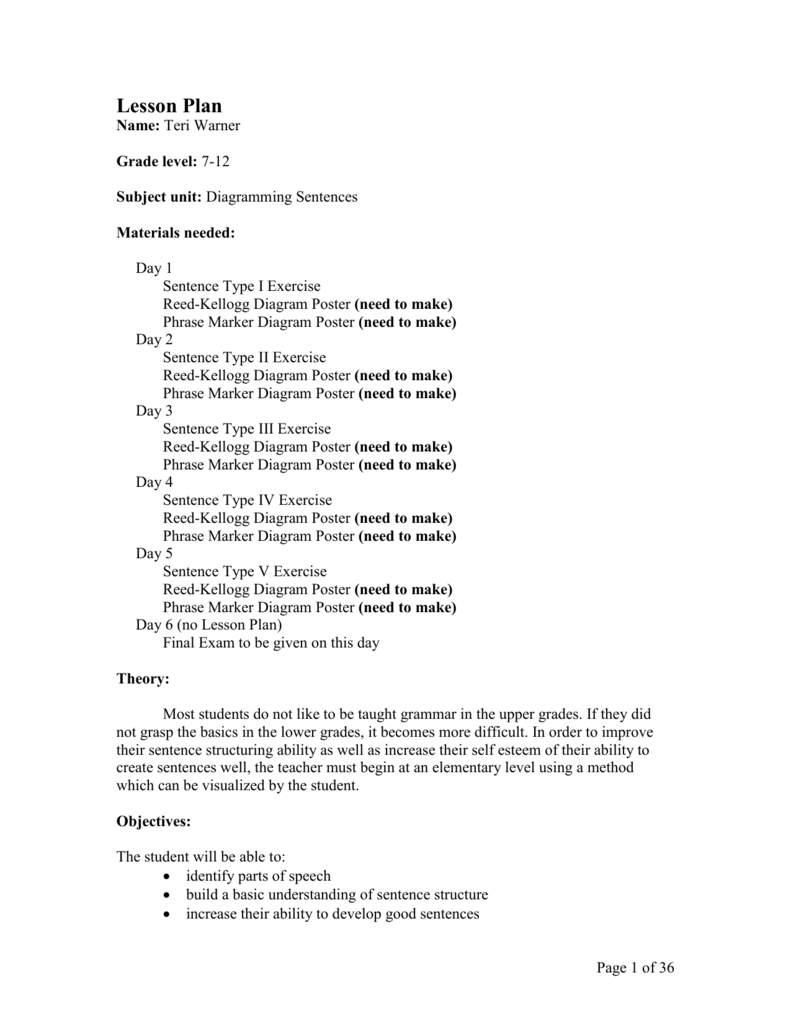
Sentence Diagramming Lesson Plan
Teachers: have the students write their own sentences on the board, and then identify the subject and predicate in each sentence. Rules for writing sentences: 1. Every sentence must begin with a capital letter. 2. Every sentence must end with a punctuation mark. You use different marks for different kinds of sentences. Punctuation Marks:

Combining and Rewriting Sentences Lesson Plan for 3rd 5th Grade Lesson
A lesson plan is a document that outlines the content of your lesson step-by-step. It's a list of tasks that your students will undertake, to help guide your teaching. A lesson plan is usually prepared in advance and can either cover a one-off activity, an entire lesson, a unit or course, a day, or a week.

Different Types Of Lesson Plan Models Design Talk
There are three main types of sentence structures: Simple Sentence: One independent clause with a subject and a predicate. Ex: The dog wags her tail. Compound Sentence: Two or more independent clauses joined together by a coordinating conjunction (i.e., and, but, for, or, nor, yet, so) Ex: I open the door, and the dog wags her tail.

Types of Sentences Lesson Plan for 2nd 5th Grade Lesson
Introduction. (2 minutes) Write the acronym FANBOYS on the board and circle it. Ask students to share what comes to mind when they see this acronym. Record their answers around the acronym to create a graphic organizer, even if they are incorrect. Tell students that the acronym is a major part of today's lesson, and after the lesson, they.

Types of Sentences Chart English Language Charts for the Classroom Types of sentences
Teaching Commas: Complete Grammar Lesson Plan. Teaching commas can be overwhelming if you have no where to start. Today, I'm sharing my grammar lesson plan for commas with you, including how to teach comma usage in a straightforward way, and how to teach commas in a fun way. Activities for teaching commas can be straight-forward and engaging.

Week 1 Grammar Grade 7 Detailed Lesson Plan Use Phrases, clauses, and sentences appropriately
Declarative Questions/ Interrogatory. Imperative Exclamatory. 3. Discussion. Discuss and give examples of the 4 types of sentences: 1. Declarative: statement of fact without strong emotion and ends with a period; I am a teacher. Bill plays the ball.
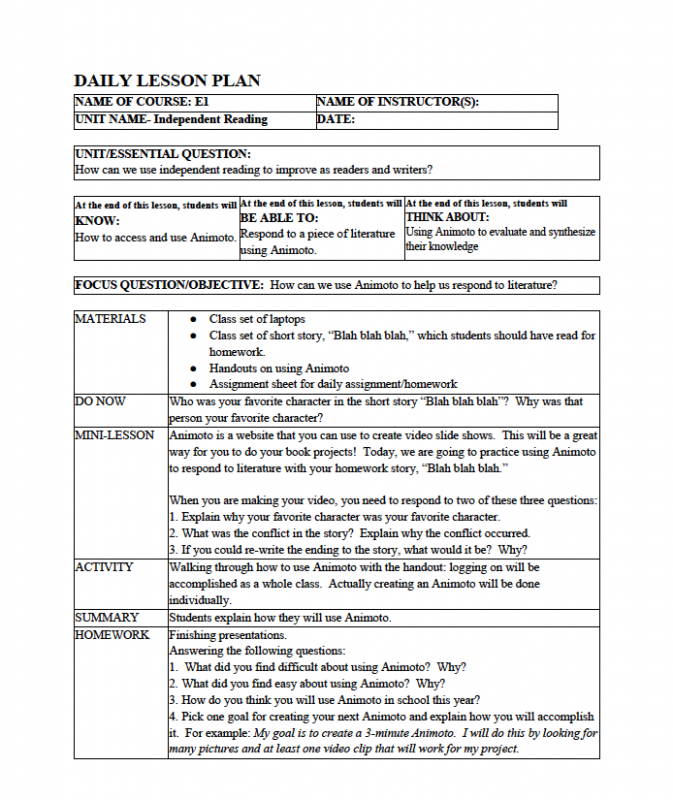
Lesson Plan Format Fotolip
With our Sentence Types lesson plan, students learn about different types of sentences and how they are used in writing. Students practice identifying and using each of the four types of sentences discussed in this lesson: declarative, imperative, exclamatory, and interrogative.